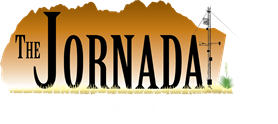| Title | Examination of sheep as a potential disseminator of grass seed |
| Publication Type | Conference Paper |
| Year of Publication | 1995 |
| Authors | Ksiksi T., Fredrickson E.L., Barrow J.R., Havstad K, Estell RE |
| Conference Name | 48th Annual Meeting of the Society for Range Management |
| Date Published | 1995 |
| Keywords | dissemination, grass seed, seed viability, sheep |
| Abstract | Seeds resistant to intestinal and ruminal degradation have potential for dispersal by ruminant livestock. Additionally, very small seeds may have short ruminal retention times and, thus, escape ruminal degradation. Depending on the extent of intestinal degradation, small seeds may remain viable after excretion. These seeds may subsequently benefit from high nutrient and perhaps moisture conditions associated with dung. Five 4-year-old, ruminally cannulated wethers were used to study the effect of buccal, ruminal, and intestinal digestion on seed viability of Lehmann lovegrass. After ruminal evacuation followed by a 21-day ruminal adaptation to pelleted alfalfa, three experiments were conducted. Experiment 1 tested seed viability after ruminal plus post-ruminal digestion. Hydrated seeds were dosed intraruminally and total fecal collections were made. An aliquot of the feces was wet sieved and seeds recovered. Germination rates were then measured. Intact fecal pellets were used to determine seed viability under in situ conditions. Experiment 2 tested the influence of ruminal degradation on seed viability using in sacco techniques. After incremental ruminal incubation up to 120 hours, all intact seeds were isolated and seed viability was measured. Experiment 3 tested the effect of mastication on seed viability. Seeds mexed with seed-free straw in a proportion of 1 to 10 were fed to each wether and boli recovered manually before rinsing and germination rate determinations. These experiments are assisting efforts to determine digestive influences on seed viability of differing plant species. These efforts will provide information necessary to both promote and prevent seed dispersal by domestic livestock. |


